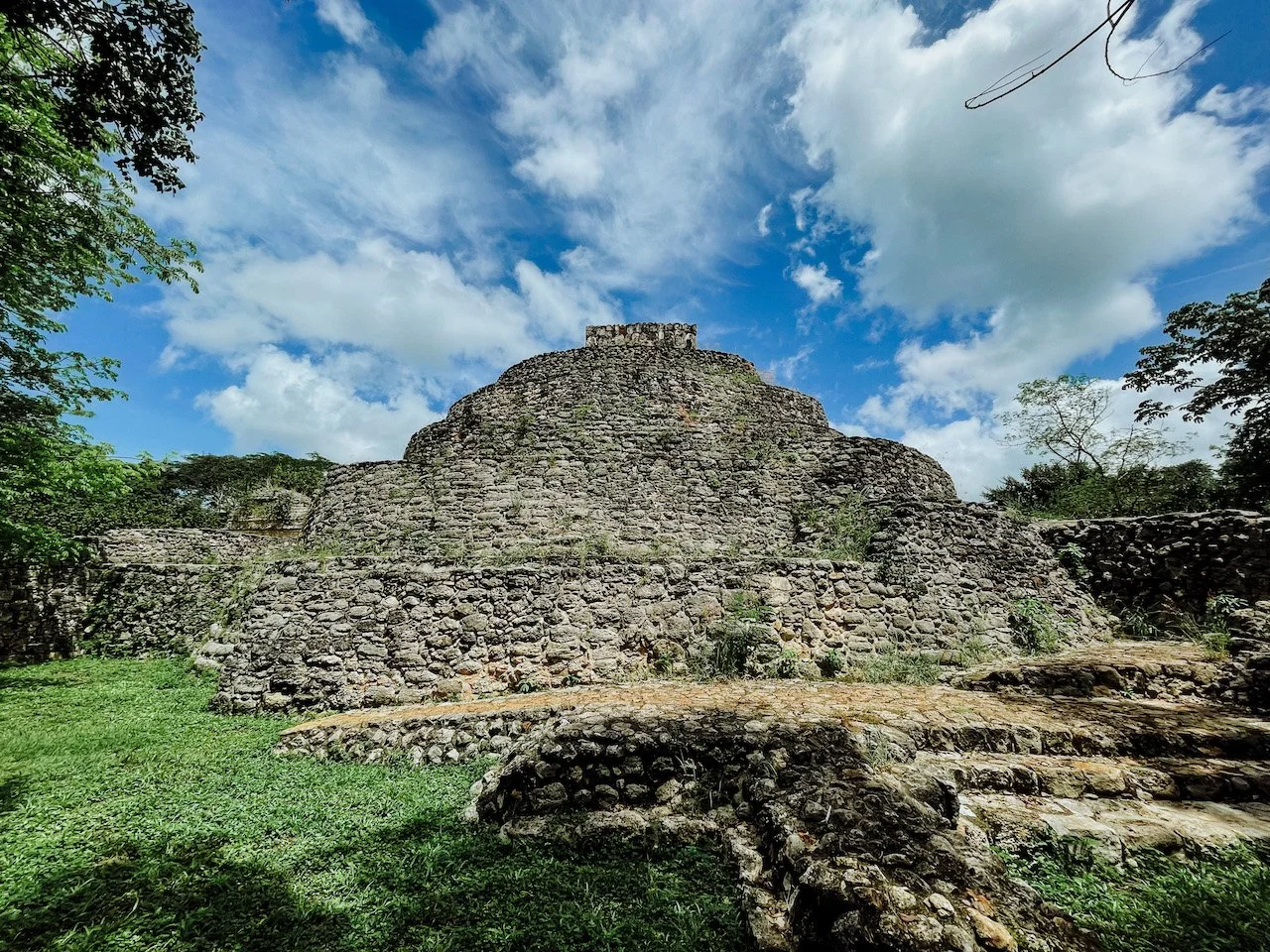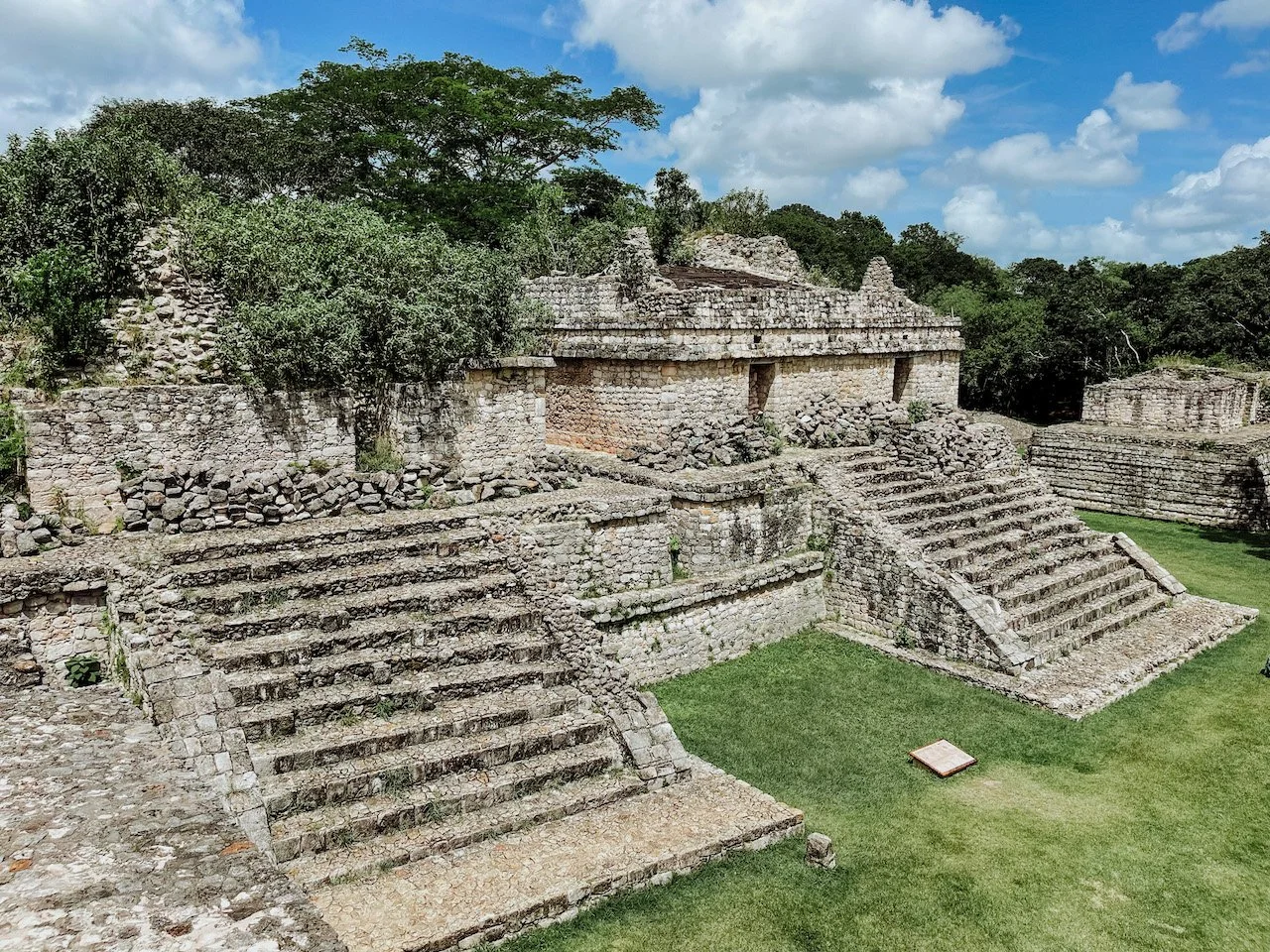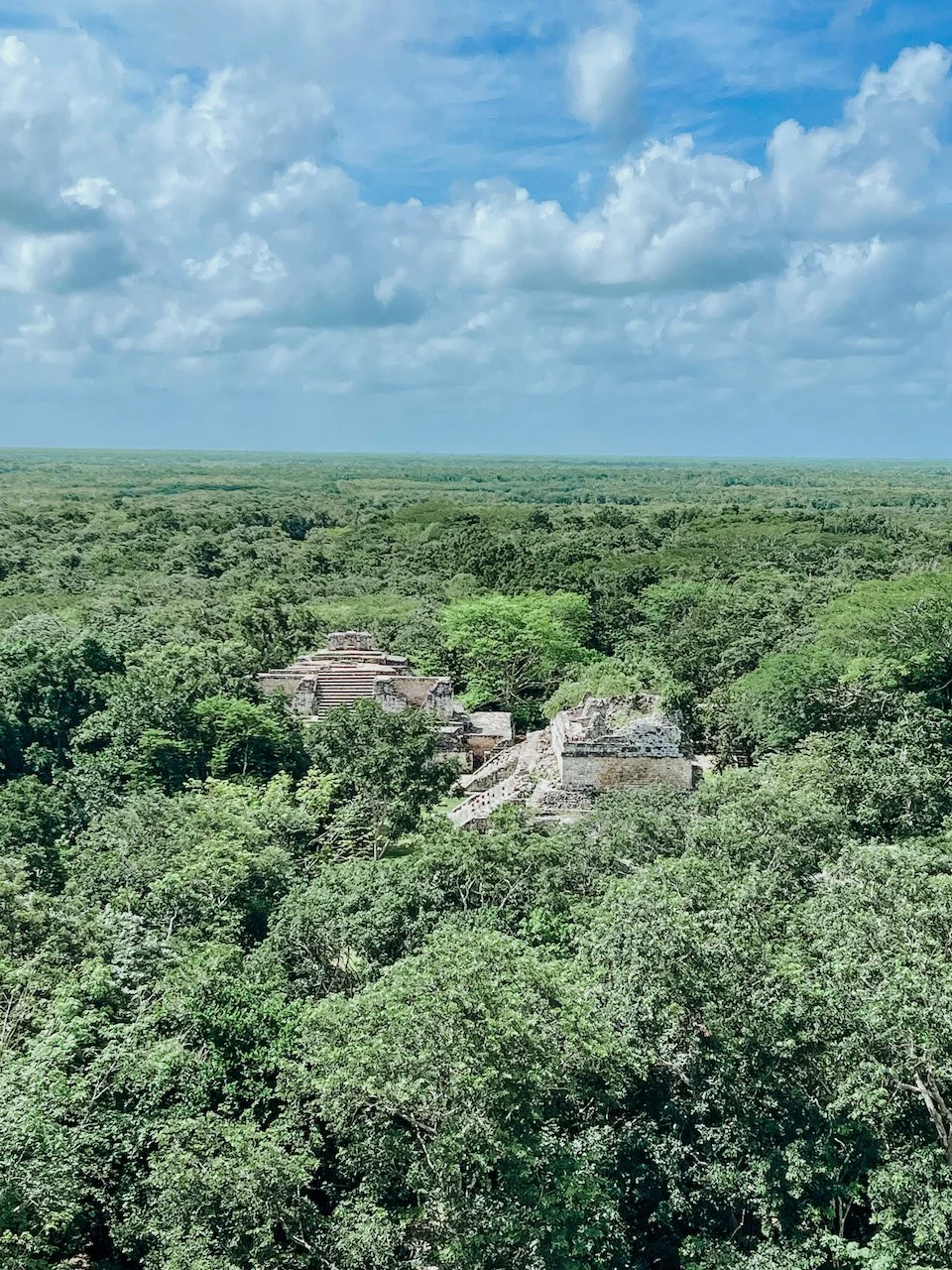Ek Balam
I'm always looking for alternative to mega tourist attractions, mostly to avoid crowds and tour buses.
Avoiding Times Square is a prime example, and we found great alternatives in Mexico, too.
We found a great alternative to the Chichen Itza Mayan ruins on the Yucatan Penninsula, by visiting the lesser-known Ek Balam ruins (on Google Maps as Zona Arqueologica de Ek Balam).
Don't get me wrong: Chichen Itza is worth a visit. It was named one of the "New 7 Wonders of the World!"
Chichen Itza was one of the largest Mayan cities when it was populated from 600-1200 AD.
These days, it's one of the biggest tourist attractions in Mexico.
The archeological site welcomes 2.5 - 3 million visitors a year.
You'll see hoards of people arriving by car, and bus after bus pulling into the lots, nearly three hours west of Cancun.
For me: therein lies the problem. In an effort to have a more peaceful experience with Mayan ruins, we diverted to Ek Balam. Admitedly, I'd never heard of it before our visit to Valladolid.
Ek Balam is an even easier day trip from Cancun, and just two hours west of the resorts.
Ek Balam was once the seat of a Mayan kingdom, during the 700s and 800s AD.
We arrived shortly after the site opened in the morning, and found just a handful of cars in the lot. While it grew more crowded over the hours, it remained quiet and peaceful.
In our photos, you can see entire areas without other tourists walking around.
Something important which separates Ek Balam from other ruins: you're allowed to walk on them.
You can scale long staircases, and walk up to see burial chambers, temples, and wall paintings. You can climb the defensive walls, and explore many parts of the site on foot.
You can climb the long staircase on the structure known as "The Acropolis," and take in the view from the summit.
Large shade trees provided some cool on the hot, humid day we visited in September, and wildflowers were blooming on the grounds.
Ek Balam was discovered in the 1880s, but excavation didn't begin for another 100 years. The site itself is 10-square-miles, but the walled area is compact and easily walkable.
It opened to the public only recently, in the late 1990s, and is still relatively unknown... making it much more enjoyable to visit.






